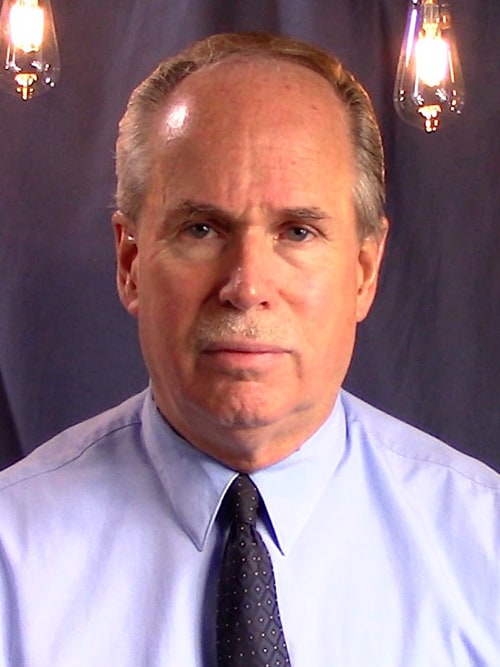We make decisions all day, every day. Whether those decisions are the redundant routine things that fill up most of our days, or those decisions are the seminal moments that alter our lives for the rest of our lives. Some of the decisions that we make are conscious; choices that are the product of much time, rigorous thought, the balancing out of potential consequences, weighing the pro’s and con’s, performing analysis sometimes to the point of paralysis, and drawing on whatever our resources might be to make the best possible decision. Sometimes our decisions are well researched, talked about, prayed about, stewed over, mulled over, poured over and turned over in our heads until our heads hurt.
At other times our decisions are entirely unconscious, being something more of reflex, habit and instinct. Sometimes those decisions are made on the run, navigating whatever’s coming at us at the moment that it’s coming at us. Often we don’t have the time to think and we have no space to ponder what needs pondering. The minute that we might use to think about our decision is already packed with something else that’s already more than what those sixty seconds can hold. On top of that, the next thing in our lives is already upon us, having shown up way too early like some uninvited relative. Hot on its heels, the thing after that is already well on its way to our front door with whatever demands it’s going to make. So we make decisions in a reflexive, unconscious kind of way because that’s all we can do.
Decision Being a Choice
Decisions occur when we make a choice. A choice implies that we have options; that we have an array of things or possibilities or directions or resources or whatever to choose from. Without options we don’t have a choice for there’s no other choice to make. Therefore, the existence of a choice likewise indicates the existence of options. The process of making a choice involves narrowing down those options in order to embrace a single option. The other approach is that we do a bit of picking and choosing, blending several possible options or parts of options into a single, workable option. However we go about it, we spend our lives making choices which is the shifting through of options.
What Drives Our Decisions?
Yet, what drives our decisions whether those decisions are conscious or unconscious? What’s the underlying stuff that shapes, drives and directs whatever choices we make? We can assume that our choices are based entirely on whatever our options are. We can presume that what drives our choices depends on what we’re having to choose from at the time we’re having to make the choice, the limitations that we have at the time we’re making the choice, as well as the practical implications of the choice both long-term and short-term. In other words, what dictates our choice is whatever’s going on as we make them.
It seems that the real truth of the matter is that the things that drive our decisions are much less about the reality of whatever those decisions are and much more about our underlying value system. What drives our decisions is something much more core to who we are. The chemistry and alchemy of our decisions arises from core values that shape our perception and our thinking. To say that our choices are nothing more than a mix of all the stuff of whatever our present options represent cheapens the ability we have as humans to make powerful decisions in the most difficult of situations. We’re driven less by the realities of what we’re facing, and more by the core values, beliefs and deep within us.
There are fundamental core values that we might not recognize at all, that we might not be able to articulate, and that we might deny wholesale. We have core values that we’ve intentionally developed and other core values whose origins are entirely unknown. We are driven by deep passion, core convictions, bedrock values, staunchly held beliefs and deeply engrained opinions. The depth of these and their centrality in our lives is such that they affect all that we do whether we realize that or not.
Exactly What Are Our Values?
The issue is what kind of core values do we possess? What do our values look like? Exactly what are the values that we hold to? What’s the nature of them? The holding of core values does not mean that those values are sound, right, moral, ethical or anything else for that matter. Core values can be rotten to the core. So, presuming that we have values doesn’t mean that we have good values. Yet, good or bad we all have core values.
In making decisions, we need to understand that those decisions will be a direct reflection of our values, whether those values are positive or negative, healthy or unhealthy, ethical or immoral, selfish or selfless. Our decisions are a concise and tightly focused mirror of our values. We then need to realize that our choices are not wholly based on the reality of the options presented to us, or the dynamics that we’re dealing with. Our decisions are not wholly the carefully crafted outcomes of carefully weighed facts and carefully considered repercussions. The weight of our underlying value system will always be heavier than the realities of the options before us and the reality of the dynamics that surround those options. More than anything, our choices are a product of our values and less a product of our acumen. Whether slight or significant, our values will tip the scale in their direction.
A Look at Ourselves
An unknown author wrote, “When one bases his life on principle, 99 percent of his decisions are already made.” Our values decide our decisions. We would do well to look at our decisions as they are a direct reflection of the values that we hold. Our decisions may reflect values that are sound, balanced, ethical, moral and resonating with sustaining depth. On the other hand, our decisions may reflect values that are selfish, unethical, imbalanced and lacking any real substance to render them timeless or timely. Either way, our true reflection is reflected in the mirror of our choices and decisions.
So as you peer into this mirror, what do you see? You may not like what you what you see, but look into it anyway and decide what, if anything, you want to do with the reflection that’s staring back at you. If you happen to like what you see, you may want to ask how do I keep that reflection solid and vibrant, and how do I further build on it and enhance it. Regardless, your choices and your decisions reflect who you are at the core of who you are. It’s all worth a good look and it’s worth some serious reflection.

 Craig Lounsbrough
M. Div., LPC
Craig Lounsbrough
M. Div., LPC